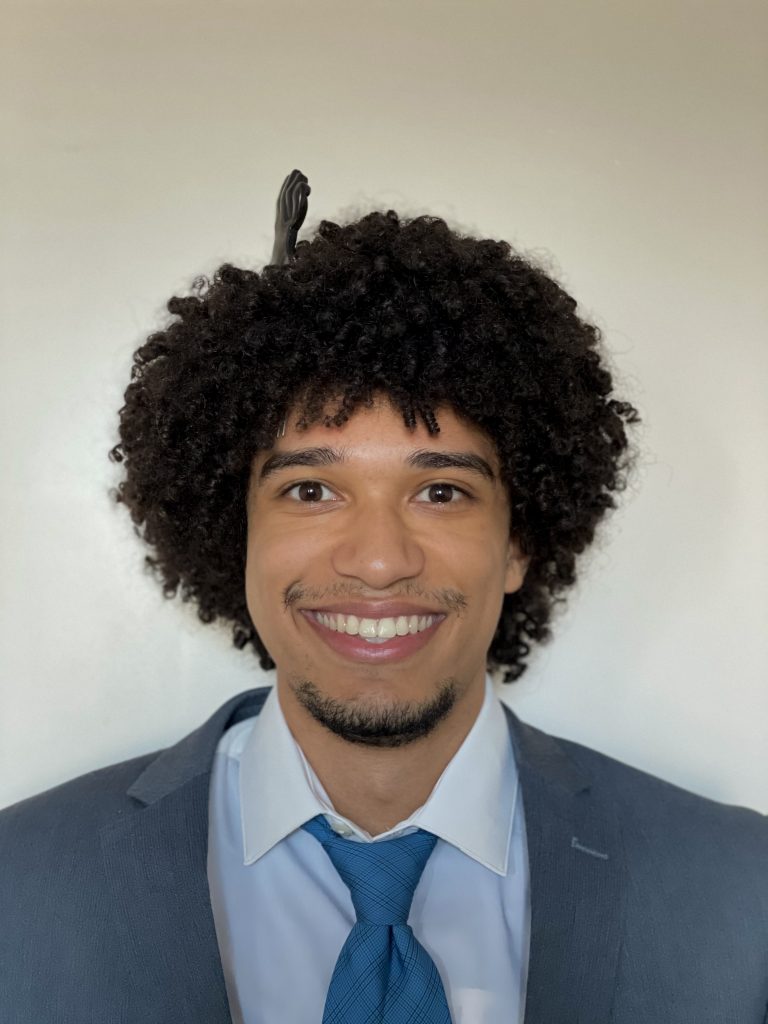Kyle Johnson, a Ph.D. student working with professor Shyam Gollakota in the Allen School’s Network and Mobile Systems Lab, received a Generation Google Scholarship for his academic performance, leadership and commitment to diversity, equity and inclusion. The company created the scholarship to help students pursuing computer science degrees excel in technology and become leaders in the field.
As a researcher, Johnson aims to create battery-less micro robots designed to operate autonomously for prolonged periods of time, implementable as the sensory notes in a swarm algorithm. To achieve this, he plans to leverage the properties of structures like leaf-out origami to create origami robots. These have potential applications in many environments requiring both low-power and small-scale devices, like in the deployment of space rovers for interplanetary exploration.
“As a first year graduate student, Kyle is leading embedded systems and robotic research that span aerospace, electrical and mechanical engineering and computer science,” said Gollakota. “The miniaturized robotic systems he is building, if successful, are creative and more importantly useful for achieving wireless sensor deployment at a scale that has not been possible before.”
In addition to his research, Johnson has been a leader in working towards improving diversity, equity and inclusion in academia and technology fields. For the past three years, Johnson has taught middle and high school students how to code and hardwire a multitude of different sensors and devices, demonstrating to students that they can apply the technical concepts that they learn in class towards solving real-world problems.
In the summer of 2019, Johnson traveled to Cape Town, South Africa to study racism, education and development. There, he learned from high school math and physics teachers about creating lesson plans and teaching to diverse students before eventually teaching some of those classes himself. At the University of South Africa, Johnson shared his experiences during the “Trauma, Educational Exclusions and Survival: Examining Global Student Experience & Resilience” workshop at an academic development symposium and encouraged those at the university to be more engaged in public schools to better prepare students for higher education.
Upon his return to the United States, Johnson co-founded the student group A Vision for Electronic Literary & Access (AVELA) to provide more opportunities for underrepresented students to pursue their interests at a university level. Johnson and the other AVELA members accomplish this by representing the populations that they aim to support while leading workshops, camps and other forms of community outreach. AVELA has partnered with Seattle Public Schools, the Kent School District, the National Society of Black Engineers, Seattle MESA, The Urban League of Metropolitan Seattle, InspireOne, and the city of Seattle to teach engineering workshops and create lesson plans catered towards aspiring, underrepresented students. The organization is in the process of earning a 501(c) status; as a nonprofit, AVELA can apply for grants and additional funding.
Over the past year, Johnson has worked to help change policies and job descriptions at the University of Washington to make them more equitable and created tools for students to more quickly report racism, sexism and other discriminatory actions. He also co-founded the Black Student Graduate Association (BSGA).
““The BGSA focuses on giving UW’s Black graduate students the space to relax, network and share experiences,” Johnson said. “As the 100-member organization expands, I hope more Black graduate students will find solace in a community of their peers.”
In addition to his Google Scholarship, Johnson is also a recipient of the National Science Foundation Graduate Research Fellowship, the National GEM Consortium Fellowship and the Washington Research Foundation Scholarship. And he is a LEAP Fellow – the LEAP Alliance is a collaboration among Berkeley, CMU, Cornell, Georgia Tech, Harvard, Illinois, MIT, Princeton, Stanford, Texas, and Washington focused on diversifying LEAdership in the Professoriate.
Congratulations, Kyle!


